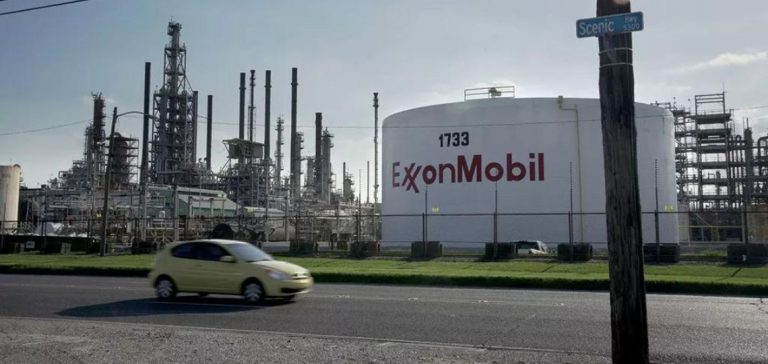The State of California is taking legal action against ExxonMobil, accusing the company of running a misinformation campaign about its plastic recycling solutions. Rob Bonta, Attorney General of California, explains that this action follows a nearly two-year investigation.
The investigation revealed that ExxonMobil had deliberately exaggerated the effectiveness of its advanced recycling technologies, including pyrolysis, a process used to convert non-recyclable plastics into fuel.
Advanced recycling, as promoted by ExxonMobil, is supposed to offer an innovative solution to the global plastic waste crisis. However, the slow progress observed in the development of these technologies is attracting strong criticism.
According to the Californian authorities, the company has falsely reassured the public of the impact of its initiatives, thereby contributing to the worsening of plastic pollution on a global scale.
Practices contested by environmental groups
Several environmental organizations are joining the lawsuit, including the Sierra Club, which also accuses ExxonMobil of misrepresenting the reality of plastic recycling.
These groups argue that the company’s communications strategy has delayed real solutions to the plastic crisis, by downplaying the limitations of advanced recycling techniques such as pyrolysis.
For them, the very idea that this technology could solve the plastic waste crisis is misguided.
ExxonMobil, for its part, strongly defends the effectiveness of advanced recycling and criticizes the California state’s decision.
In a statement, the company asserts that legal action will not advance the plastic problem, and insists that its efforts to develop recycling technologies are real.
A response to a global challenge
This legal action comes at a key time, as governments and industry around the world discuss measures to tackle the plastics crisis.
International negotiations on a global treaty to regulate the production and management of plastics will be held in South Korea at the end of the year.
ExxonMobil, along with other players in the petrochemical sector, is opposed to the idea of imposing caps on plastics production, pointing to the economic consequences and impacts on innovation.
In response, the United States recently took a position in favor of reducing global plastics production, marking a major point of divergence with the industry.
Through this lawsuit, California could play a crucial role in future international discussions.
The findings of this case will undoubtedly have an impact on the outcome of the negotiations, as they call into question the credibility of advanced recycling technologies and the real willingness of the major plastic producers to resolve the crisis.
ExxonMobil faces international pressure
ExxonMobil, a major player in the plastics industry, is under pressure.
A report published in 2023 by the Minderoo Foundation, in collaboration with Wood Mackenzie and the Carbon Trust, revealed that the company is the world’s leading producer of plastic resins used for single-use items.
These fast-growing products have become the target of international criticism for their environmental impact.
Although the company continues to promote technologies such as pyrolysis, the scientific community and many regulators question the long-term effectiveness of these solutions.
They believe that restrictions on plastics production, combined with genuine innovation in alternative materials, are needed to reduce waste quantities.
A crisis with economic repercussions
Plastic recycling is not just an environmental issue, it also represents a major economic challenge.
Oil-producing countries and major petrochemical companies alike are under increasing pressure to innovate.
As one of the industry’s biggest players, ExxonMobil is under pressure to justify its strategies to governments and regulators.
This case could also influence financial markets, particularly if regulators start imposing fines or restrictions on the production of single-use plastics.
Investors are keeping a close eye on developments in this area, as they could have an impact on the valuation of companies in the petrochemicals sector.






















